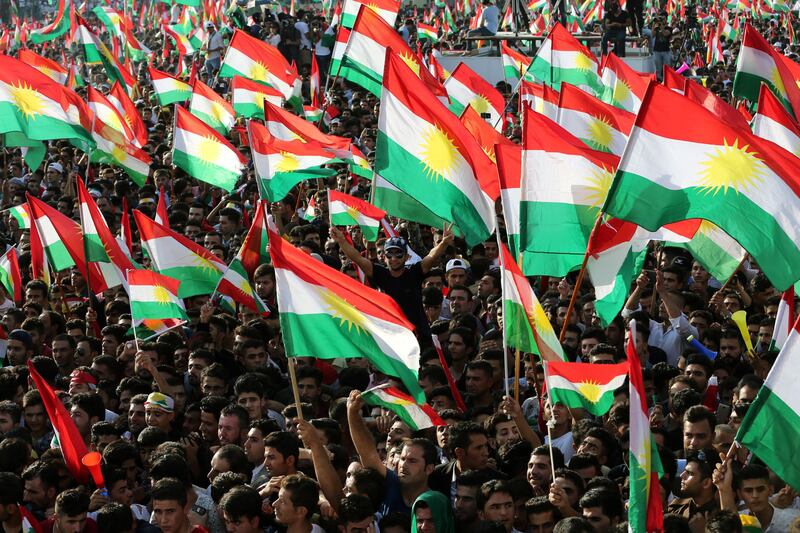US special envoy in the anti-ISIL campaign Brett McGurk left no room for doubt that Washington opposes Kurdistan’s bid for independence in a referendum on Monday, saying that it holds enormous “risks” and could bring “consequences we [the US] don’t fully control”.
In a briefing with reporters on the sidelines of the United Nations General Assembly in New York on Friday, Mr McGurk said negotiations were continuing to convince Iraq’s Kurdistan region leader Massoud Barzani to seek “an alternative” for the referendum, which according to the senior US official “holds very high risks which the US cannot control”.
“There is a very good package on the table” Mr McGurk said, and the US is “in close contacts with leaders in the region who are very close friends and partners” to reach an alternative. Asked by The National on what are the consequences if such a referendum were to take place, Mr McGurk reiterated that there may be ramifications that “we don’t fully control.” In speaking about this issue, the US envoy twice referenced Donald Trump’s meeting with his Turkish counterpart Recep Tayyip Erdogan, a strong opponent of the referendum.
Despite US concerns about the Barzani plan, Mr McGurk offered an optimistic outlook on the fight against ISIL following a meeting for the global coalition in New York, headed by US secretary of state Rex Tillerson and attended by 24 member states.
In terms of numbers, Mr McGurk said 80,000 square kilometres have been liberated from ISIL in Syria and Iraq, and that 4 million Iraqis and 2.2 million Syrians no longer live under control of the extremist group. One third of that territory has been liberated since Mr Trump took office in January. After the liberation of Mosul, Mr McGurk said the US and the coalition “see an end in sight” in Raqqa, ISIL’s last stronghold. “We have to focus on getting ISIL out of Raqqa – in the last three neighborhoods, as soon as military phase concluded, we have 100 sites for de-mining identified” he said.
The US envoy sounded optimistic on the diplomatic front, and in speaking about the improvement in relations between Saudi Arabia and Iraq. “It’s a sea change” Mr McGurk said, echoing comments from Saudi Foreign minister Adel Jubeir and his Iraqi counterpart Ibrahim al-Jaafari in the meeting on rapprochement between Riyadh and Baghdad. “A lot of work to get to this point – they already opened one border crossing and close to opening another one and are operating direct flights” he said.
Economically, the Saudi-Iraqi thaw in relations “opens a commerce route into heart of the Red Sea – we are encouraged by it” said the envoy as well as its impact on Anbar province, and in addition to $1 billion commerce route from Amman to Baghdad that recently opened. “We are ensuring the route remains opened,” he said.
Mr McGurk announced that Kuwait will be hosting reconstruction conference for Iraq early next year while tying any reconstruction efforts in Syria to the political process.
The US envoy voiced high level of confidence in the Syrian Democratic Forces, saying “areas taken from ISIL [in Syria] will remain in local control” and that the population “prefers SDF to Assad forces.” He emphasised that talks with Russia involve deconfliction in these areas and that “both sides want to avoid accidents.”
In Mosul he said the focus is on “stabilisation” and that 97 per cent are back to East Mosul while the Western part of the city remains more difficult.
Mr McGurk saw better odds for stability in the anti-ISIL fight because of the new diplomatic arrangements in the region and the military advances on the ground. “We can not be fatigued” he said “we have to follow through.”






